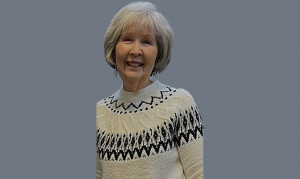“Liberty, equality, fraternity” was the watchword of the French revolutionaries. They’d never heard of the Boy Scouts of America (obviously), but if they had, they would be tossing their liberty caps in the air at last week’s news of the Scouts’ decision to admit girls. Ah, citoyen, a wonderful thing, no?
Well, we’ll see how wonderful it all is as we get farther down the road. It might not make as much difference in practice as in theory. (Though the millions who have sat around Boy Scout campfires, reveling in male companionship, are entitled to wonder.)
The inevitability and expectedness of the move is the main point here. We’ve been headed for a very long time, in the United States especially, toward the affirmation: “What you’ve got may be just the thing I need,” whether it’s money, privilege, national origin or luck. What about sex? That’s trickier, but we can work on it — and by the way, these days we call it “gender.”
Distinctions among and between humans don’t work as well as they used to — including distinctions that seem natural, like the above-mentioned and widely observed divergences between men and women.
It formerly seemed natural to lovers of knot-tying and outdoor camping that boys were OK in an organization for boys alone, whereas girls could pursue complementary, if not exactly the same, objectives in an organization for girls alone. That now-dead or dying perception was intuitive. This was how things were, based on the nature of the universe.
That was before big-bore politics, based on distribution and redistribution in ways that appealed to voters who thought in terms of class and interest. Suffragettes and feminists were ahead of the curve in this regard, noting men’s various advantages in many departments of life and the government’s imperative to erase those advantages, natural-seeming or not.
Much good has come of breaking down no-longer-relevant barriers. The prime ministership of Margaret Thatcher comes instantly to mind. But does eradication of dated distinctions argue for the eradication of “inequalities” wherever they exist, insofar as law and politics are up to the task?
I wouldn’t say so for a minute. I’d say instead the reverse. It’s time for distinction-makers of every kind to come out of the closet and affirm that we’re not all the same. No democracy worth its salt should say otherwise. Alas!
“Inequality” (translated as “how dare you treat me that way?”) is hyped around the land. “Progressives” specialize in it. The wealthy, not to mention the merely successful, are in their sights; also those of “European background”; and men in general, who generally used to run everything.
This latter datum goes a ways toward explaining the drive to de-masculinize traditional male preserves: e.g., the priesthood, military combat duty and the Boy Scouts. It started with all-male clubs, 30 or 40 years ago, the rap being that maleness itself, fed by male associations, held back the onward march of women would-be executives.
Maybe so, maybe not. We might reflect that the desire to wipe out human distinctions is as capable of hurting as of helping. Where badly or needlessly done, it feeds jealousy and envy. It undermines common sense. We’re not all the same, and difference is good — in bad times as well as the reverse.
Life is as multifaceted as the multifaceted humans who lead it. Politicians chasing votes — which are the stuff of power over others — have heard no genuine call to rearrange realities, least of all those realities with a divine character, speaking of human nature itself: who we are, how we’re made, what our duty is toward others.
That’s the point where revolutionaries come in. No realities for them: just slogans and trumpet calls.
[William Murchison’s latest book is “The Cost of Liberty: The Life of John Dickinson.”] COPYRIGHT 2017 CREATORS.COM












Leave a Comment
You must be logged in to post a comment.